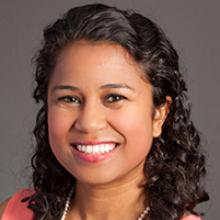Examining the Efficacy of Circles on School Safety and Student Outcomes in Boston Public Schools
The circle is a facilitated, structured process that brings together members of the community (e.g., school staff, students, parents) and allows all participants to have an equal voice.
In the CF model, the circle is the dominant practice for prevention, relationship building, and responsiveness. Circles are implemented at Tier 1 to build community and develop positive norms; at Tier 2 to manage disruptions and solve problems; and at Tier 3 to respond to serious incidents of harm and misbehavior.
The CF model focuses on training, experiential learning, and changes to school policies and procedures to support consistent circle practice.
Exclusionary discipline practices have been shown to disproportionately affect students of color and students with emotional and behavioral disorders (Osher et al., 2010). Exclusionary discipline has also been linked to a host of negative educational and justice outcomes (Noltemeyer et al., 2015; Wolf & Kupchik, 2017).
One approach to creating real change in both school safety and the use of exclusionary discipline practices is to change the culture of the school by using circles and restorative practices to transform student-teacher relationships, peer relationships, and staff culture.
With funding from the National Institute of Justice, AIR, in partnership with Boston Public Schools and Suffolk University Center for Restorative Justice, is examining the effectiveness of the Circle Forward (CF) whole-school restorative practices intervention. The Center for Restorative Justice developed the CF model, in which the circle is the dominant practice for prevention, relationship building, and responsiveness.
AIR will examine the effectiveness of the CF model on school safety and student outcomes using a cluster randomized trial, the gold standard for evaluating program effectiveness. Thirty middle and high schools will be randomly assigned to either implement the CF model (15 schools) or to continue with their business as usual approaches to school climate and discipline (15 schools).
Impact Evaluation
The impact evaluation will examine the CF model’s effects on disciplinary incidents, attendance, student achievement and school climate by comparing these measures in the schools randomly assigned to implement the CF model to schools randomly assigned to continue with their business as usual.
The impact evaluation will answer the following questions:
- Do students in schools implementing the CF model report more positive perceptions of school climate than students in schools not implementing CF?
- Do schools implementing the CF model see improvements in behavioral outcomes (i.e., increased attendance, reductions in Code of Conduct violations and arrests)?
- Do schools implementing the CF model see improvements in student academic achievement?
- Do schools implementing the CF model experience reductions in use of suspensions?
- Are there reductions in disparity in use of suspensions by gender, race, or students with a disability?
Process Evaluation
AIR also is conducting a process evaluation, drawing upon data collected from teachers, students, administrators, and other stakeholders in schools implementing the CF model. The process evaluation utilizes surveys, interviews, and focus groups to better understand challenges and facilitators to effective implementation of the CF model.
The process evaluation seeks to answer the following questions:
- To what extent is the CF model implemented with fidelity, and how does implementation fidelity vary across sites?
- How is the CF model integrated into and coordinated with preexisting programs and aligned to school policies and practices, so as to become routine use?
- How do schools resolve challenges to program implementation?
- In what ways does training lead to changes in practice for those trained?
- What are the financial and other resources needed to implement the CF model to the level of “routine use?”


